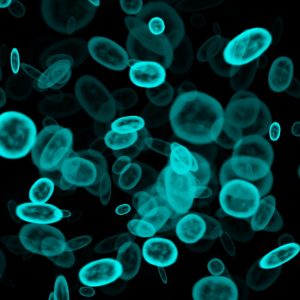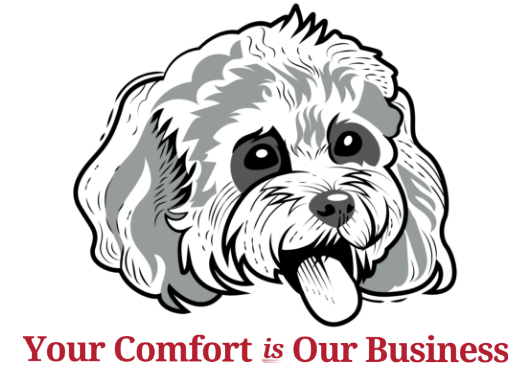 Indoor air quality is the biggest indoor danger that you’ve probably never heard of. IAQ is a measure of the cleanliness of the air in your home, and the lower it gets, the more likely you and your family can become susceptible to sickness.
Indoor air quality is the biggest indoor danger that you’ve probably never heard of. IAQ is a measure of the cleanliness of the air in your home, and the lower it gets, the more likely you and your family can become susceptible to sickness.
Luckily, the HVAC industry has several solutions for low IAQ, some of which include:
Controlling Indoor Humidity for Better Air Quality
According to the relative humidity index, a humidity level between 30 and 50 percent is the normal range for comfort. Others would go on to say that a solid 45% is the ideal number for comfort.
Air that’s too dry can compromise your immune system, since a certain amount of moisture is required to get your sinuses working properly. Not only that, but I’m sure you know how uncomfortable it is to wake up in the morning with a dry and scratchy throat or to live with dry and cracking skin.
Air that’s too moist, of course, is the worst part about hot weather. Humidity will ruin your hair, prevent your body from being able to sweat properly, and can raise your body temperature. If you’ve ever tried to sleep when humidity levels are high, you’ll know how difficult it can be.
Luckily, with whole-house dehumidifiers or humidifiers, you can get closer to that 45%.
How ERVs and HRVs Improve Air Quality
Typically, your AC system will benefit the most from a home that is sealed up tight to prevent any air from escaping. When air is money, this practice will save you money in the long-run. Unfortunately, there is one drawback to this practice:
It lowers your indoor air quality.
Without fresh air coming into the home, your air will only get staler as it recycles the same, old, contaminant-filled air. Luckily, heat and energy recovery ventilators (ERV and HRV respectively) are specifically designed to help bring fresh air into the home. Not only that, but they also work in accordance with the seasons. That way you won’t be pulling hot air in during summer or cold air during winter. This helps to take some of the strain your furnace as it prepares for colder months while maximizing your air quality.
Best Air Filter and Purifier Options for Your Home
Due to indoor pollutants like volatile organic compounds, pet dander, allergens, and other contaminants, indoor air quality is often worse than outdoor pollutants. Getting rid of those contaminants for good is your best way to improve IAQ.
One way to do this is with air filters or air purifiers. They both act to trap and dispose of the contaminants in your air, but they have slightly different methods for doing so. An air filter is simply a filter that prevents contaminants from getting through. As for air purifiers, these use electricity to attack the particles and trap them against a plate which can be cleaned later.
So how do you know if you need a filter or purifier? The best way is to let a professional HVAC contractor in Snellville, GA test the air for the worst contaminants. Depending on if those contaminants are mostly organic, chemical, or mostly dirt, you’ll want to use the appropriate filter. If you’re dealing with persistent air quality issues alongside heating inconsistencies, it’s also worth checking whether your furnace is blowing cool air instead of heat, which could signal a deeper HVAC problem. If your system seems to be struggling with airflow or isn’t keeping your home comfortable, it could be time to evaluate your HVAC system’s performance or check for clogs in the condensate drain that may be affecting efficiency.
You don’t have to be a victim of low indoor air quality. Contact Snellville Heating, Air and Plumbing today!



